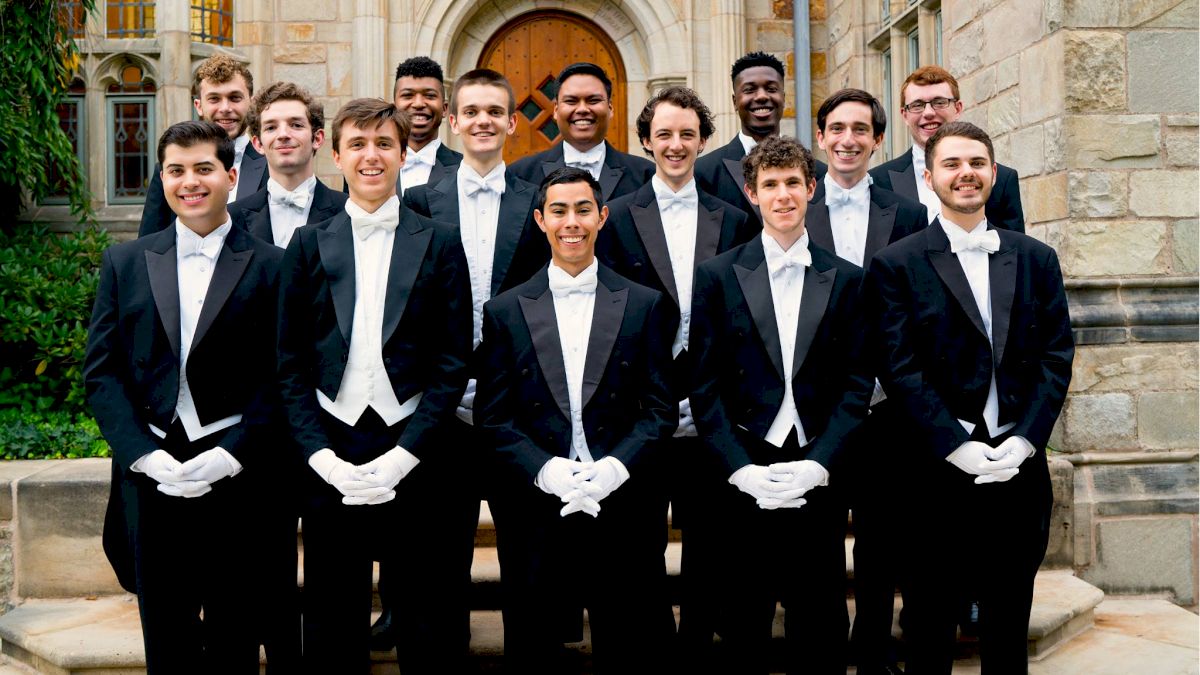What’s Next: Former Whiffenpoofs Member Discusses Gender In A Cappella
What’s Next: Former Whiffenpoofs Member Discusses Gender In A Cappella
Since the beginnings of vocal ensembles, most groups have identified themselves by gender.

Since the beginnings of vocal ensembles, most groups have identified themselves by gender.
However, with the notion of gender becoming an increasingly hot topic, numerous groups around the U.S. have lifted gender designations, or, for single-sex ensembles, have decided to admit anyone identifying as that gender.
The Whiffenpoofs, thought to be the oldest collegiate contemporary a cappella group, recently made international news by accepting their first female member, Sofia Campoamor. The Harvard Low Keys also now describe themselves as a “contemporary gender neutral a cappella group,” placed front and center on the group’s website.
To further this conversation, we sat down several members of the a cappella community, starting with Douglas Hummel-Price, a 2008 alumnus of the Whiffenpoofs, to talk about how this shift in gender restrictions may or may not change the ensemble experience.
FloVoice: What did the Whiffs experience mean to you?
Hummel-Price: In the short term, the experience was incredible. I was given the chance to eat incredible meals, perform in beautiful venues, and drink top-shelf spirits. We met awesome people — we sang for Paul McCartney, George H.W. Bush, and many diplomats, leaders, and CEOs, among others. Those are the more superficial perks.
By far, the biggest impact on me was the international touring. We traveled to around 20 countries on six continents. We consciously chose to go to non-Western/European countries. The idea was that you can travel to Germany or Switzerland whenever you want so long as you have money. You cannot recreate the experiences we had in places like Kenya, Nepal, China, Japan, or Turkey with just money.
Do you feel think this change in membership policy will change the group experience?
Yes, though likely not as significantly as some suggest. It's no surprise that many members of male a cappella groups are gay men. My experience as a straight man in the group was different from that of a gay man. In some way, the new presence of women will make the group less of a desexualized space than it was prior, but it's worth pointing out that this was already the case for gay men.
That said, members of co-ed groups are already used to this dynamic, so there doesn't seem to be reason to suspect that this will result in any categorically new intra-group conflict.
Do you think other groups will follow suit? Should they?
Some will, others won't. The latter question is a bit harder. A myriad of factors go into this decision. For the Whiffenpoofs in particular, the decision is heavily influenced by the presence of its sister group, Whim'n Rhythm. Since Whim is less than half as old as the Whiffs, they don't have the same kind of established contacts and alumni networks that facilitate the Whiffs' extensive touring. Part of the motivation for this decision was to combine the business offices of the two groups to better allow Whim to take advantage of the Whiffs’ connections.
The big question mark for me is the musical evolution of the next 10 years. While any given new class of Whiffs could decide to undo this decision, I'm highly doubtful that would happen.
Apparently Sofia, the woman they tapped for next year, has done her fair share of arranging. It seems obvious to me that a woman who sang for three years in a co-ed group is going to have a somewhat unique perspective when composing for TTBB. This isn't inherently good or bad. It could result in her struggling to create viable arrangements, or it could result in her creating something new altogether.
Is this a game-changing decision for a cappella?
Hmm. In my mind, there are really only two major game-changers in this field in the past 25 years. The first is the emergence of beatboxing combined with adding vocal effects to recorded a cappella. The second game-changer has been technology and social media.
In that context, no, this isn't a game-changer for a cappella. Some groups will adopt this change quickly, others will dig in their heels, and many groups will be somewhere in-between. It is definitely more significant for what it means about women/patriarchy/sexism/etc.
The Whiffenpoofs perform at a lot of elementary and secondary schools. Girls that see someone like Sofia in the Whiffs may be motivated to pursue singing themselves, or even use that as fuel to overcome gender-related barriers in their own lives. Representation matters.
Tomorrow, we’ll check in with Lisa Forkish, founder of the Women’s A Cappella Association who will share her thoughts on gender in a cappella.